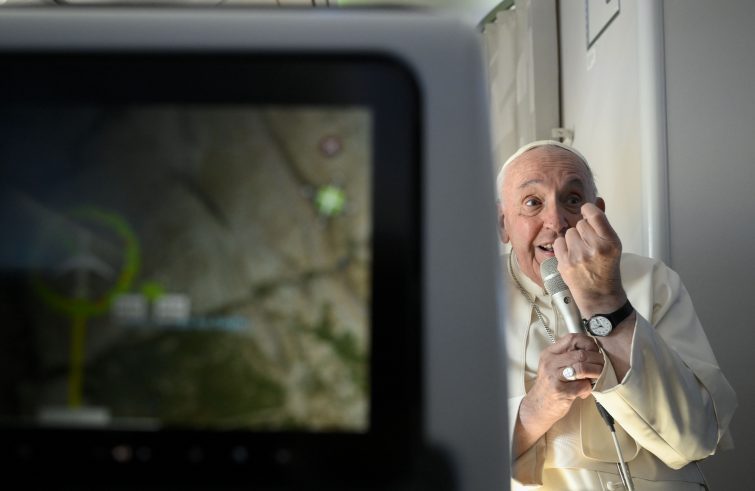
There is a specific beatitude that clearly illustrates Pope Francis’ Message for the 57th World Day of Social Communications. It tells us – in the words of Jesus – that it is not enough to go, it is not enough to see, it is not enough to listen unless it is done openhearted.
“Blessed are those with pure hearts, for they shall see God.” At a time that glorifies harshness as a means of shattering the truth, the Pope shows us a different path – if we truly wish to understand. It is a simple path, which in a high-tech society has nothing to do with technology; which in the society of outward appearance has nothing to do with form, for it has to do with content.
Only those with a pure heart can see the truth in love, wherein all things abide.
Only those who love well can communicate well.
It may seem a path that does not concern professionals. It may seem… were it not for the fact that the Patron Saint of journalists, St Francis de Sales, firmly believed that “In order to speak well, it is enough to love well”, or for the fact that one of the greatest journalists of our modern times advocated the same thing: empathy, sharing the feelings of another that stems from a harmony of hearts, from empathy, without which the true act of feeling is impossible. “Good journalism – said this extraordinary reporter – requires first and foremost being good men, or good women: good human beings.
“Bad people cannot be good journalists. If you are a good person, you can try to understand others, their intentions, their faith, their interests, their difficulties, their tragedies. And instantly, from the very first moment, become part of their destiny.”
I happened to quote this reflection by Kapuscinski on many occasions, for it decisively refutes the false truth whereby for a good journalist to be successful in his job, he should go ahead regardless of everyone. Indeed, it bluntly tells us that by having no regard for anyone we run the risk of becoming locked in our own theorems, our own prejudices, our own flawed heart, thereby dodging responsibilities, and missing the very opportunity to verify the truth.
Many years ago, in picturing the drift characterising this soulless approach to communication, Cardinal Martini observed that it all originates in the desire to “elicit sensational and exciting feelings in order to ‘ sell the news story’ more and better than others: “Placing the emphasis on sensationalism, on details that stir feelings of attraction, disgust, revulsion, pity – he said – causes an inflation of feelings while at the same time heightening the need for ever more exciting emotions.”
“This phenomenon becomes even more worrying when the ‘echo chamber’ appears to be directly connected to powerful covert interests”, he remarked.
It is for all the above reasons – I believe – that with his Message Pope Francis invites us to look inside our hearts, he exhorts us to return to the very source of the vocation of journalist and communicator: communicating truth with the wisdom of a pure heart, without prejudice; coming to terms with our own conscience, being able to discern the truth over appearance amidst confusion, inconsistencies and idle talk. And share it, that it may grow in dialogue, in relations.










